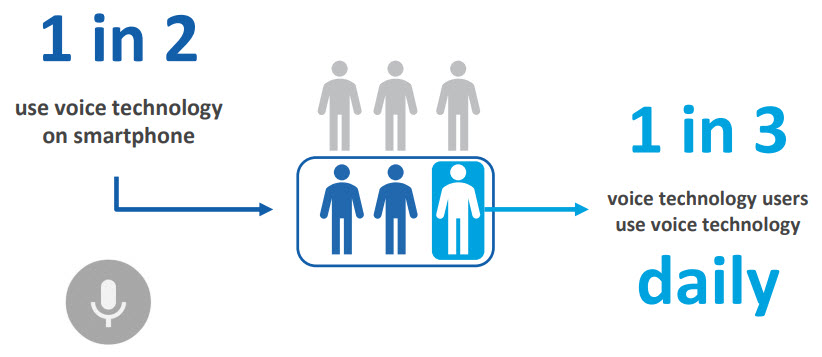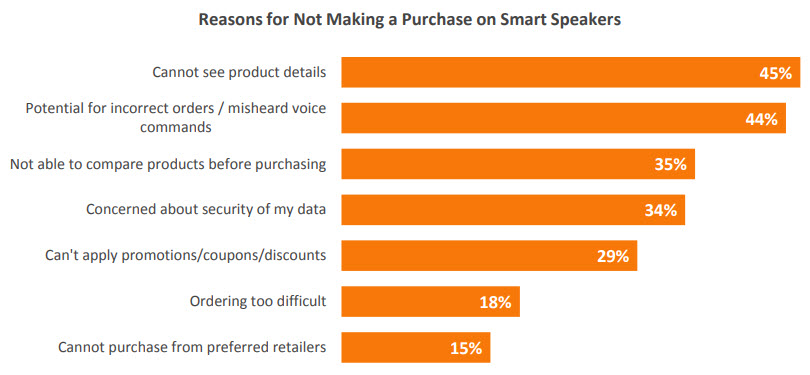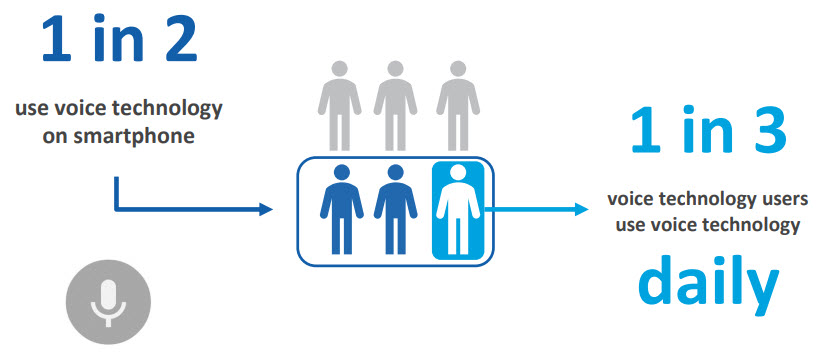As many as one in six Americans own a smart speaker such as Amazon’s Alexa or Google Home, according to market research firm Edison Research. Voice Commerce However, comScore found that Americans are still wary of making purchases entirely by voice due to the inability to see product details and the potential for incorrect orders based on poor voice interpretations. Most retail searches happening today are likely on Alexa, with its tie into Amazon’s enormous catalog of products. Google has developed a commerce model for retail via smart speaker called Google Express. But Google’s commitment to voice search (and conversational technology) make it easier to imagine a near future where there are no artificial limits. Voice Search Results To win voice results, understand how consumers search. While Google provides concise snippets as answers to voice searches, the winning page typically contains many more words. The voice result — 29 words on average — is usually a small piece within a much longer content page containing on average 2,312 words, according to a study of search results on Google Home devices by search optimizer Brian Dean of Backlinko. Content ranking in desktop searches has a higher chance of also ranking as the voice search result, with approximately 75 percent of voice search results ranking in the top three desktop search results for the same query. Featured snippets were the source of 40.7 percent of all voice search results.
The future of search is, increasingly, spoken. At its annual I/O conference earlier this month, Google made 100 announcements. More than 20 related to voice interaction. (Many others involved visual search.)
The most natural user interfaces treat technology as a conversation with another person. Voice will comprise 50 percent of all searches by 2020, according to market research firm comScore. Even today, half of smartphone users search via voice. One-third use voice search daily, according, again, to comScore.

Source: comScore. December 2017.
As many as one in six Americans own a smart speaker such as Amazon’s Alexa or Google Home, according to market research firm Edison Research. An astonishing 7 percent of Americans purchased a smart speaker in the winter of 2017 or one received as a gift.
Voice Commerce
However, comScore found that Americans are still wary of making purchases entirely by voice due to the inability to see product details and the potential for incorrect orders based on poor voice interpretations.

Source: comScore. December 2017.
Most retail searches happening today are likely on Alexa, with its tie into Amazon’s enormous catalog of products.
Google has developed a commerce model for retail via smart speaker called Google Express. This enables Google Home users to order items from a multitude of retailers, including Walmart, Target, Home Depot, and Costco. Google has issued an open invitation to join the program under its “Google for Retail” umbrella, called Shopping Actions.
Express currently has limitations, such as the $100 cap on items purchased through Google Home. But Google’s commitment to voice search (and conversational technology) make it easier to imagine a near future where there are no artificial limits.
Regardless, voice commerce is coming quickly. As more consumers rely on voice search, they’ll feel confident in ordering online. There will then be no stopping them from using voice as a means of acquiring more of everything.

COMMENTS